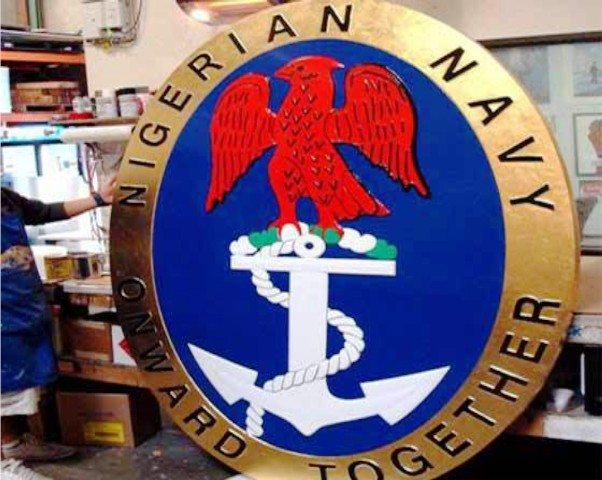Editorial
That Naval War College In Rivers

Although it may appear like a drop in the ocean, the recent commissioning of a Naval War College in Rivers State by the Federal Government is a welcome development.
The war college, unveiled last week, by the Chief of Defence Staff, General Abayomi Gabriel Olonishakin in Ubima in Ikwerre Local Government Area of Rivers State, will obviously give the Rivers people, and indeed the entire Niger Delta region, a sense of belonging.
The college, which according to the Chief of Naval Staff, Vice Admiral Ibok-Ete Ibas, will serve as the highest training institution for the Navy in addition to other top military formations in Rivers State, will no doubt, make the state a strategic player in the nation’s security system.
As one of the coastal states in the Niger Delta with difficult terrain, The Tide says with utmost confidence that Rivers State is most suitable for the siting of the Naval War College. Besides providing the naval personnel a better understanding of how to navigate the coastal terrain of the Niger Delta region for better and effective security of the region, the siting of the college in a state like Rivers will offer the Navy the best serene, aquatic ground necessary for marine training of its officers.
It is against this backdrop that we commend the wisdom behind the location of the war college, albeit ad interim, in Rivers State. We believe that the naval authorities will have no reason not to consider the state as a permanent site for the war college.
Given the potential benefits of the college on the state’s rural economy, we call on the government and people of Rivers State to leverage on the location of the naval institution in the state for maximum benefits.
Meanwhile, we urge the people of Rivers State, especially the Ubima community, where the temporary college is located to reciprocate the gesture by giving the nation’s naval authorities all necessary support and cooperation needed for the successful take-off of the war college. We also appeal to the Navy high command to give concessions to the state as a catchment area in terms of empowerment and employment opportunities. The Navy should not shy away from discharging its social responsibilities to the host state, most especially the host community.
As General Olonishakin rightly said during the commissioning, we have no doubt that the war college will equip the Navy to effectively discharge its responsibilities of protecting the nation’s territorial waters. But we want to caution the naval personnel and indeed, all the military apparatchik, to be humane and civil in the discharge of their duties in the state and the Niger Delta as a whole.
We hope that the war college in Ubima is not a Greek gift offered to oppress the people and government of Rivers State, or even turn the entire Niger Delta region into a war zone.
While The Tide commends the Federal Government for considering Rivers State suitable for hosting the highest naval institution in the country, we urge immediate action on the Bonny-Bodo Road over which the Federal Government has been foot-dragging for almost two decades.
We also appeal to the Federal Government to consider the state for more viable projects that will impact positively on the lives of Rivers people.
At the risk of sounding repetitive, we observe that Rivers State has, for more than a decade, been totally neglected in the area of federal projects, in spite of being the fastest cow that spills the juiciest milk for the country. It is for this reason that the Rivers State Governor, Chief Nyesom Wike recently mused over the non-presence of federal projects in the state.
We hope that the Federal Government will henceforth regard the State as a partner in progress and do the needful.
Editorial
Beginning A New Dawn At RSNC

Editorial
Sustaining OBALGA’s Ban On Street Trading

Editorial
AFCON ’25: Bravo, Super Eagles, But…

-

 Sports5 days ago
Sports5 days ago2026 WC: Nigeria, DR Congo Awaits FIFA Verdict Today
-
Politics5 days ago
ADC, PDP, LP Missing As INEC Set For By- Elections In Rivers
-

 Environment5 days ago
Environment5 days agoOxfam, partners celebrate 5 years of climate governance programmes in Nigeria
-
Politics5 days ago
FG’s Economic Policies Not Working – APC Chieftain
-

 News4 days ago
News4 days agoVictory Over Insurgency Certain, Tinubu Assures
-

 Politics5 days ago
Politics5 days ago2027: Diri Unveils RHA LG Coordinators, APC Congress Panel
-

 Politics5 days ago
Politics5 days agoReps To Meet,’Morrow Over INEC’s 2027 Election Timetable
-

 Politics5 days ago
Politics5 days agoGroup Continues Push For Real Time Election Results Transmission

